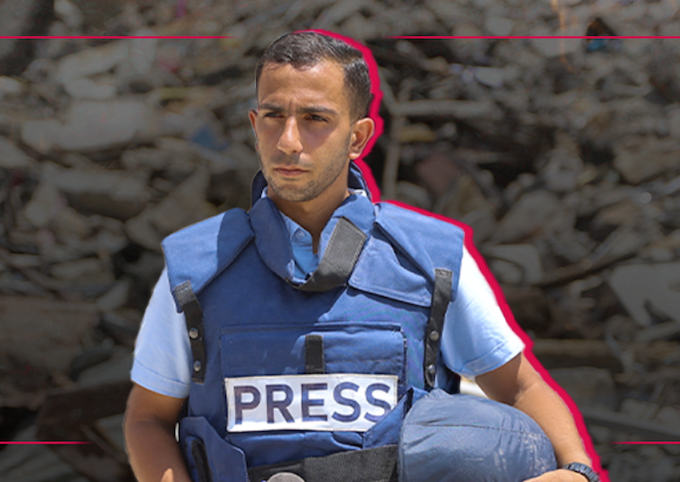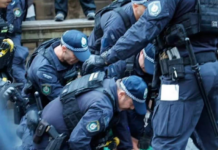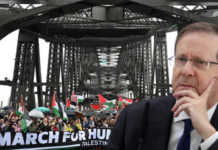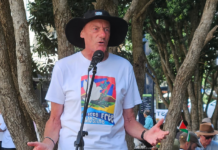
The Paris-based media freedom watchdog Reporters Without Borders (RSF) has condemned the Israeli military’s “disgraceful tactic” to cover up war crimes in the wake of the killing of six journalists in Gaza on Sunday.
It has called for an emergency meeting of the UN Security Council to stop the massacre of journalists, RSF said in a statement.
The August 10 Israeli strike killed six media professionals in Gaza, five of whom currently work or formerly worked for the Qatari television network Al Jazeera and one freelance journalist.
- READ MORE: Why Israel’s assassination of Al Jazeera’s Anas al-Sharif and crew threatens all journalists
- Tributes, condemnation pour in for slain Al Jazeera journalists in Gaza
- ‘A very dark morning’: Pain and grief as funerals held for Al Jazeera staff killed by Israel in Gaza
- Another Gaza injustice. Israel targets Anas in Al Jazeera media crew of 5
- Silencing the messenger: Israel kills journalists, while the West merely censors them
- Other Israeli war on Gaza reports
The strike, which has been claimed by the Israeli army, targeted Al Jazeera reporter Anas al-Sharif, whom it accused, without providing solid evidence, of “terrorist affiliation”.
RSF said the military had repeatedly used this tactic against journalists to cover up war crimes, while the army has already killed more than 200 media professionals.
“RSF strongly condemns the killing of six media professionals by the Israeli army, once again carried out under the guise of terrorism charges against a journalist,” said RSF’s director-general Thibaut Bruttin.
“One of the most famous journalists in the Gaza Strip, Anas al-Sharif, was among those killed.
“The Israeli army has killed more than 200 journalists since the start of the war. This massacre and Israel’s media blackout strategy, designed to conceal the crimes committed by its army for more than 21 months in the besieged and starving Palestinian enclave, must be stopped immediately.
“The international community can no longer turn a blind eye and must react and put an end to this impunity.
“RSF calls on the UN Security Council to meet urgently on the basis of Resolution 2222 of 2015 on the protection of journalists in times of armed conflict in order to stop this carnage.”
Targeted strike on tent
The Israeli army killed Al Jazeera reporter Anas al-Sharif in a targeted strike on a tent housing a group of journalists near al-Shifa Hospital in Gaza.
The strike, claimed by Israeli authorities, also killed five other media professionals, including four working or having worked for Al Jazeera — correspondent Mohammed Qraiqea, video reporter Ibrahim al-Thaher, Mohamed Nofal, assistant cameraman and driver that day, and Moamen Aliwa, a freelance journalist who worked with Al Jazeera — as well as another freelance journalist, Mohammed al-Khaldi, creator of a YouTube news channel.
The attack also wounded freelance reporters Mohammed Sobh, Mohammed Qita, and Ahmed al-Harazine.
This attack, claimed by the Israeli army, replicates a tactic previously used against Al Jazeera journalists. On 31 July 2024, the Israeli army killed reporters Ismail al-Ghoul and Rami al-Rifi in a targeted strike, following a smear campaign against the former, who, like Anas al-Sharif, was accused of “terrorist affiliation”.
Hamza al-Dahdouh, Mustafa Thuraya and Hossam Shabat, who also worked for the Qatari media outlet, are among the victims of this method denounced by RSF.
As early as October 2024, RSF warned of an imminent attack on Anas al-Sharif following accusations by the Israeli army.
The international community, led by the European Union, the United Kingdom, and the United States, ignored these warnings.
Under Resolution 2222 of 2015 on the protection of journalists in armed conflict, the UN Security Council has a duty to convene urgently in response to this latest extrajudicial killing by the Israeli army.
Since October 2023, RSF has filed four complaints with the International Criminal Court (ICC) requesting investigations into what it describes as war crimes committed by the Israeli army against journalists in Gaza.
The New Zealand-based Pacific Media Watch collaborates with Reporters Without Borders (RSF).







































